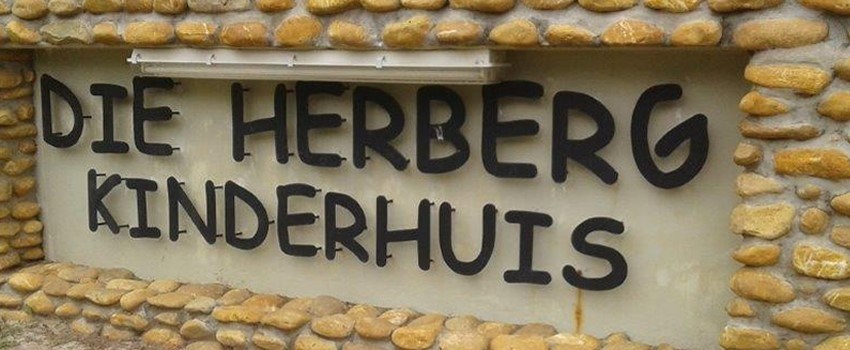In the wine industry the establishment of the KWV was probably the event of note, while across the winelands, many small towns were left with destitute orphans in the wake of the flu . Robertson – then a small town of about 3 500 inhabitants - was no exception….
A home, Die Herberg, was started in a private house, and, as the number of children increased, moved to new quarters when the municipality donated several hectares to the cause. A neglected apricot orchard occupied much of the site.

A century has passed and today Die Herberg cares for just over 120 children of all races, from birth to 18 years of age, in seven homesteads. State grants cover one-third of the costs so fund-raising is essential and ongoing . In 2003 stone fruit prices had fallen because of a flooded market while bottled wine sales had risen substantially post 1994. Local wine farmers, eyeing the fertile soil , offered to replace the orchard with a vineyard that could become a source of income through fine wine. Local businesses provided equipment and products, farmers provided vines and expertise and three red cultivars were planted. This, the start of an unique fund-raiser, presented an impressive example of generosity, selflessness and compassion by the Robertson community. It fell to Springfield estate to tend the vines and make the maiden blend of Cabernet Franc, Cabernet Sauvignon and Merlot in their cellar, the Bruwers offering their facilities and services free of charge.
The uncrushed berries were fermented with native yeasts, matured in French oak, and the wine bottled sans fining or filtration. This maiden 2008 blend was an elegant wine with firm tannins and a savory finish that impressed all who tried it. Three vintages have followed.

The wine was named Thunderchild : Just as storms are usually followed by sunshine, and the destruction they can cause can also herald new life, the parallel was drawn with children who came from homes where dark and threatening clouds affected their lives. They have exhibited the ability to overcome sadness and darkness and shine brightly when given love and care. Today, many of the children are from such homes, rather than being orphans.
When I wrote about the project in 2008 I predicted that when Die Herberg marked its centenary in 10 years time the 2008 vintage of Thunderchild would have probably reached its peak in time to toast 100 years of caring. What I did not predict is just how the project has blossomed, as substantial sales locally and internationally see impressive revenue flowing to the home’s Trust.
Thunderchild is managed by the Wingerdprojek Trust and 100% of profits and proceeds from the sale goes to Die Herberg’s educational trust. Only hard costs – vineyard supplies, labour and packaging – are recovered. Marketing and sales are done by the community pro bono. Here the extraordinary and ongoing efforts of Jeanette Bruwer of Springfield Estate cannot be over emphasized – thanks to her efforts , Thunderchild is sold in the UK, Netherlands, Ireland, Germany, Switzerland, China, Botswana and Namibia. National sales continue to be substantial, with Investec pouring it for their functions and Woolworths stocking it in their upmarket stores.
Jeanette is always quick to point out local support by wine stores, restaurants and bars. Several cellars in the Robertson region and further afield stock Thunderchild and display the bottles and their story prominently in their tasting rooms.
In need of a warm fuzzy feeling? Then be inspired by the reports of how the Trust funds have benefitted children over the last decade.
The fund pays for a full time tutor to help with homework and studies and provide extra maths classes for all. By 2017 five children had enrolled in universities or colleges of their choice, and not only their fees, but books, meals and pocket money were covered by the fund. Those shining at sport have been funded to take part in competitions including an overseas rugby tour to England and Scotland and a dancing competition in Croatia.
One decision with major impact was to ensure that every child leaves the Home with a driver’s licence, something not paid for by government funds. Teenagers finding employment and apprenticeships in trades after school are at a great advantage by being able to drive.
Others who have special needs are also given the best chance to succeed: currently 25 of these children are at special needs or technical schools in neighbouring towns as Robertson lacks such an institution. Thunderchild transports them on a weekly basis, pays tuition fees, board and lodging.
Time to pour a glass or two of Thunderchild 2015. Elegant, delicious, and a tad more accessible than some of the earlier vintages, this is a winner in every way. As Jenna Bruwer put it, every child has the potential to change the world :The Thunderchild Project aims to unlock that potential for those at the Robertson Children’s Home .